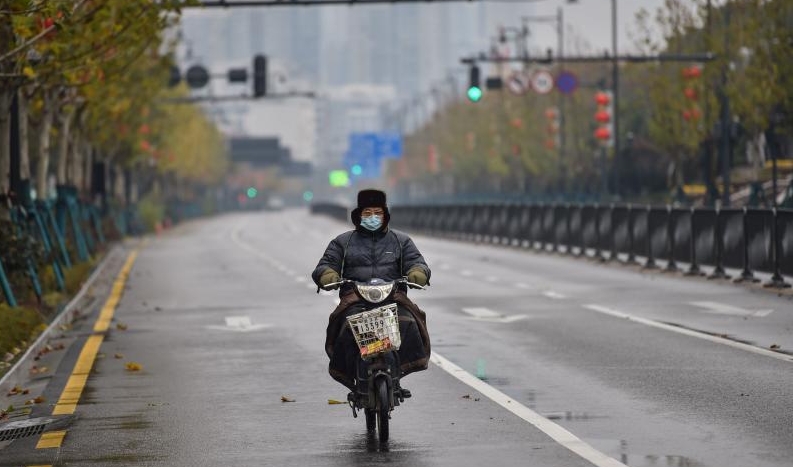
By Lim Sue Goan, Sin Chew Daily
Prior to the outbreak of the 2019 novel coronavirus, well loaded Chinese tourists were received with open arms throughout the world. However, they are best avoided today, thanks to the viral outbreak, with many filing online petitions calling for their governments to bar Chinese nationals from entering their countries. Indeed, many have done so.
It is necessary for us to pick up some lessons from the latest outbreak with the hope the infection could be contained as soon as possible.
First of all, we have to learn to live peacefully with the virus. Similar to the SARS virus originating from the Chinese province of Guangdong in 2003, experts believe that the Wuhan virus could very likely come from wild animals. Viruses inside the bodies of wild animals will not do humans any harm until they are ingested into our own bodies out of a perverted lust for exotic meats.
Along with all other living things on this planet, we all have our respective spaces for existence while there are certain laws governing the survival of individual species. The moment the red line is crossed, viruses which have existed so well inside the bodies of wild animals will find a new host in us.
In a similar manner, human beings should maintain an equitable and mutually respectful relationship with our natural environment. Mother nature will backfire the moment we deliberatley ravage our environment. Human beings will eventually fall victim to the many disasters that come with climate change, including the bushfires that have lasted for months in Australia.
To avert the the disastrous eventualities, we must do our utmost to respect the living spheres of all organisms and respect the laws of Nature.
Secondly, management of viral outbreak must be utterly transparent. The novel coronavirus has been able to spread this fast because crucial warnings and information were withheld during the early days of outbreak.
The first confirmed coronavirus infection was reported on December 1 last year, but the Chinese government only briefed the WHO of the outbreak on last day of the year, while the city lockdown was enforced only from January 23. Imposing lockdown to curtail the spread of the virus was the right thing to do, but it came far too late as some five million Wuhan folks had left the city for Lunar New Year holidays before the city was sealed off, sending the virus far across the country and beyond.
It has been reported that at least 20 government officials in six provinces and municipalities have been held accountable, but the thing is, the Chinese bureaucracy badly lacks transparency, and few government officials would bother to answer to the people they are supposed to serve.
Meanwhile, the Beijing authorities have banned all outbound group tours and at least 25 airline companies have cut or stopped flights to China, with the United States issuing the highest level of travel alert for the country. Foreign retailers have shut their outlets in most severely affected areas, while governments rush to evacuate their citizens from the outbreak epicenter. It is understandable that the aviation, tourism and retail sectors will all be hard hit by the outbreak.
The global economy, which is already taking the brunt of the ongoing US-China trade war, is suffering a further blow as the virus spreads its tentacles across the globe. The global economy will dive, plunging millions into destitution including low-income Malaysians, if the Chinese economy heads for a hard landing.
It is utterly important for us to have a keen crisis consciousnesses while constantly upgrading our medical facilities and equipment to ready ourselves for any medical emergency, including viral infections.
If China were to aspire to become a world leader, the country's system must first be put on par with the rest of the world.
Another lesson we can pick up from this tragic event is to fight in unison against the virus without any discrimination or division.
The novel coronavirus has unreservedly exposed one of humanity's biggest weaknesses: discrimination and exclusionary mentality. In many provinces of China, for instance, we have seen sporadic acts of discrimination against the natives of Wuhan or Hubei province, while discrimination against Asians has been reported in some Western communities.
There have been polarized views over discriminatory comments and actions against Chinese nationals. Singapore's education minister Ong Ye Kung has reminded Singaporeans not to do unto others what they don't want others to do to them, as Singapore was among the hardest hit countries during the SARS outbreak.
Meanwhile, Taiwan is holding a completely opposite attitude, banning the export of face masks for one month despite a bumper production that more than enough meets the domestic demand, agreeing to reverse the decision only after the government has come under public criticism.
Battling the viral outbreak should transcend political and religious divisions. Unfortunately PAS' Batu Buruk state assemblyman Muhammad Khalil claimed that the coronavirus was God's punishment for China. What about the MERS (Middle East respiratory syndrome) outbreak of 2012 then?
Fortunately there are still many who care and donate to the victims in Wuhan. We can only win this war if the source of virus in Wuhan and Hubei is completely blocked.
Our world is such a mess today because we have learned to hate and not love. While the war against the virus will eventually be won, we may never uproot the hatred if we allow it to grow, propagate and be justified.
ADVERTISEMENT
ADVERTISEMENT


































